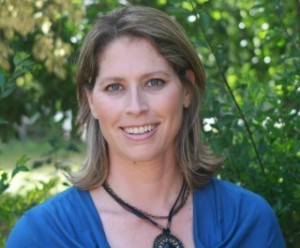It is safe to say that in the past two years construction starts for approximately 5,000 housing units
took place in the settlements. This huge jump in construction starts took place, according
to the CBS, mainly in the beginning of 2013, whereas in Peace Now’s data it was reflected only in 2014.
On March 10, 2015 the Israeli Central Bureau of Statistics (ICBS or CBS) published the number of construction
starts for 2014. According to the CBS, 1,344 new housing units started to be built in the settlements in 2014 and
2,829 units in 2013. Peace Now, who conducted a count of all construction starts based on aerial photos, reported a
higher figure for 2014 (3,100 housing units) and lower one for 2013 (2,243 housing units). So how much was actually
built?

With less than a week before Israelis go to the polls, Israel's leading political blogger Tal Schneider spoke with APN's Ori Nir about the pre-election trends and about what she would be looking for on election night. Tal's English language blog is here: http://en.talschneider.com/
Israel Elections: What to Expect -- with Tal Schneider from Americans for Peace Now on Vimeo.
After my dear friend Leonard Nimoy died recently, I was reminded of the time in 2011 when I first
introduced him to Americans for Peace Now-- a shiddach worth celebrating. What was born of this relationship was
a fundraising letter that he enthusiastically endorsed.
In my March 4th tribute to Leonard published in Tablet, I noted, "When I've asked other celebrities to sign a petition, ad, or call to action—whether about peace or women's issues—they usually want to know who else is signing; they need cover; they need time to consult their friends, managers, or agents to be sure they're not risking their public image. Not Leonard. He simply read the suggested draft, tweaked a few sentences, then put his name to the letter, which closed with a plea for a tax-deductible contribution to APN -- and the inside Spock joke, "Dare I say it? It's the logical thing to do."
--One of many senior figures in Likud who told media that they are afraid Likud will lose the elections.**
1) Where and when to follow election results and analysis?
If you are not a Hebrew speaker and are not going to tune in to online broadcasts of Israeli radio (Reshet Bet; Galei Tzahal) or television (Channel 1; Channel 2; Channel 10), you can start following exit polls and real results as of 10:00 PM Israel time (4:00 PM EST) on Tuesday, March 17 on Israeli English language web sites (Haaretz; The Times of Israel; Ynet; Jerusalem Post; i24) as well as on APN’s twitter accounts, available through our web site. Votes are typically counted quickly. A good picture of election results should be available before midnight EST.
This resource page will offer you background, analysis and commentary on the elections - everything you need to know!
Post-Elections:
NEWLY ADDED: APN's Lara Friedman: What Can the US and International Community Do About
Settlements?
Press Release: APN on Israeli election results: We have our work
cut out for us
Take Action!Tell President Obama: Stand Up for Peace, Stand Up to
Bibi
Pre-Elections:
Eight things to look for on Israel’s election night
New video: Pre-election analysis with Israeli political reporter
Tal Schneider
Elections 101 Fact Sheet
Israeli Elections: Latest News & Polls
Yossi Alpher Elections Analyses
APN's Ori Nir Interview: NPR's Nationally Syndicated
Show "To The Point" (3/13/15)
Briefing Call: "One month to Israel’s elections" with Amir
Tibon
Briefing call: Akiva Eldar on Israeli early elections
Yossi Alpher is an independent security analyst. He is the former director of the Jaffee Center for Strategic Studies at Tel Aviv University, a former senior official with the Mossad, and a former IDF intelligence officer. Views and positions expressed here are those of the writer, and do not necessarily represent APN's views and policy positions.
Below is a compilation of elections-related materials from Yossi Alpher's Hard Questions, Tough Answers, December 8 to the present. You can see all Yossi Alpher’s Hard Questions, Tough Answers columns here.
March 18, 2015 - Israel’s Knesset elections - analysis
March 9, 2015
- Netanyahu’s speech to Congress: looking beyond the commentary heard thus far.
March 2, 2015 - Meanwhile, back home in Israel.
February 23, 2015 - Knesset election assessment.
February 16, 2015 - With one month to go, Netanyahu’s election manipulations.
February 9, 2015 - Jordan being dragged into the Syria conflict, escalated fighting in Sinai, an
election update and more.
January 26, 2015 - Netanyahu's invitation to speak before Congress, new elections lists, the Saudi
succession and more.
January 12, 2015 - The Paris attacks and the Islamist threat, election update, and more.
December 22, 2014 - UNSC Palestinian statehood votes; is there Israeli consensus on UN
intervention? and more.
December 15, 2014 - Israeli Elections - small signs of hope; and security and violence.
December 8, 2014 - The Israeli elections issue.
Overview
Israel is a parliamentary democracy with legislative, executive and judicial branches. The Knesset is the country's legislative organ. It is located in Jerusalem and includes 120 seats assigned on the basis of nationwide proportional representation. It operates through plenary sessions and through fifteen standing committees.
Knesset members are elected in four-year terms through party lists. They enact laws, supervise all government activities, and can elect or remove the President of the state.
The judicial branch, separate from the Knesset, includes both secular and religious courts.
The government coalition, which forms the executive branch, consists of the Prime Minister and the Cabinet of Ministers. It is responsible for administering internal and foreign affairs, including security matters.
To follow the latest news and polls related to the March 17 Israeli elections, subscribe to NewsNosh - APN's summary of the Israeli media prepared daily by journalist Orly Halpern in Jerusalem. Below is a compilation of elections-related materials from the NewsNosh, February 1-present.
-Likud representative explains how the Israeli Prime Minister avoided peace.**

